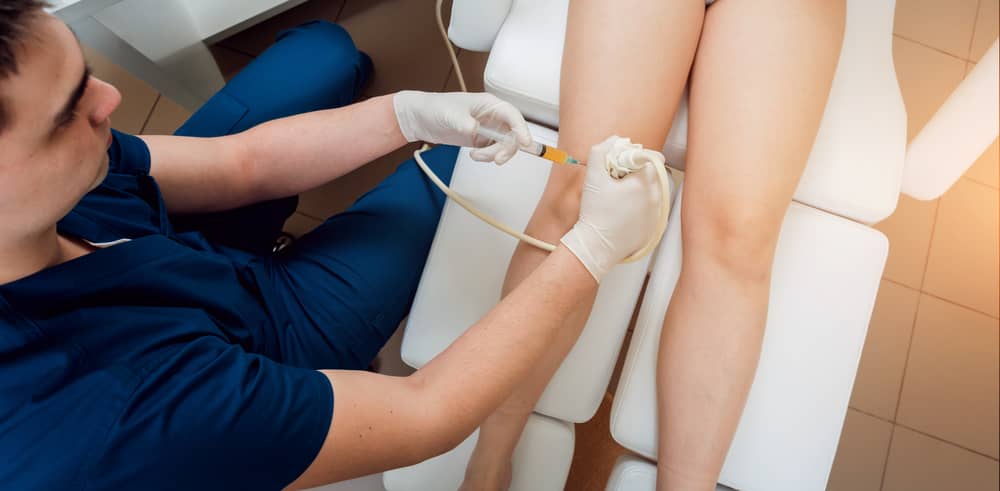What Are Knee Osteochondritis Dissecans?
Cuerpo
A joint ailment known as osteochondritis dissecans occurs when loose pieces of cartilage and bone break off the end of a bone. Most often affecting the knee, in 75 percent of cases, osteochondritis can also affect the elbow, ankle, shoulder, hand, wrist, or hip.
Osteochondritis primarily affects individuals in the 10–20 age range, with men three times more likely than women to have it. People who perform repetitive activities like jumping that require a lot of knee movement are likelier to develop it.
Causes of knee Osteochondritis Dissecans
It is thought that several factors contribute to the development of osteochondritis in the knee by decreasing the blood supply to the bone:
Genetic Predisposition
Osteochondritis may be hereditarily predisposed to develop in some people. The likelihood of the condition occurring may increase if there is a family history. In roughly 10% of cases, there is a genetic component.

Hormonal Factors
Adolescents and other hormonal imbalances or changes may impact the development of osteochondritis dissecans in the knee.
Repetitive Microtrauma
Osteochondritis dissecans is frequently brought on by repeated stress or minor trauma to the afflicted joint.
Trauma
A direct hit or other acute trauma to the knee, such as an injury, can also set off an OCD episode. The blood vessels supplying the bone and cartilage can sustain damage from a single traumatic incident.
Overuse and Overtraining
Participating in high-impact, repetitive activities without sufficient time off can raise your risk of developing osteochondritis dissecans.
Common symptoms of knee Osteochondritis Dissecans
Joint Locking
If the loose fragment becomes lodged in the knee joint, it can occasionally "catch" or "lock." Before straightening your knee, you should wiggle your leg to move the fragment.
Knee swelling is a typical osteochondritis dissecans symptom. The loose fragment may irritate and inflame the joint, resulting in fluid build-up and swelling.
Pain
The most prevalent sign of osteochondritis dissecans is pain, which is typically brought on by activities like climbing stairs, playing sports, and twisting motions.
Weakness & Instability
The leg may experience weakness or feel like it "gives way." Usually, this gets worse over time due to the pain, causing the muscles to atrophy.
Reduced Mobility:
If there is a loose fragment, the knee's ability to fully bend and straighten may be compromised, affecting its range of motion.
If you are experiencing any of the following symptoms, get in touch with your knee pain treatment specialists financial district right away.
Treatment for knee Osteochondritis Dissecans
The mentioned effective medical treatment for knee pain is suggested by Knee Pain doctor jericho.
It Includes:
Rest: To allow the bone to heal, stay away from joint-stressing activities like sports for six to twelve weeks. Crutches might be necessary.
Knee braces are a helpful tool for supporting the knee and easing joint pressure. An Advanced Knee Brace or Elite Brace will typically be most beneficial because they offer the correct support to promote healing.

Surgical treatment
Usually, arthroscopic (keyhole) surgery is used for this, in which tiny holes are used to insert a small camera and surgical instruments into the joint.
- Drilling or microfracture: The surgeon may employ a minimally invasive technique to increase blood flow and accelerate healing in smaller lesions where the fragment is partially attached.
- Fixation of Fragment: If the fragment is significant and stable, the surgeon may use screws or pins to reattach it to the bone. This can be done through open surgery or arthroscopically.
Ice and medication can be used to manage pain and swelling after osteochondritis dissecans knee surgery. Adhering to your rehabilitation regimen is crucial, as it may initially limit your knee's range of motion. knee pain treatment specialists nyc recommend knee surgeries, including ligaments, tendons, and muscles.
Conclusion
Osteochondritis dissecans is a disorder that develops in the joints (the area where two bones meet) due to internal bone softening due to a lack of blood flow. Stiffness, edema, and pain are among the symptoms. Treatment and diagnosis are covered.
Adolescents are most affected, and they first report lateral elbow pain, swelling, and loss of extension. For more information, visit the Knee Pain doctor Long Island For your knee discomfort.








Comentarios